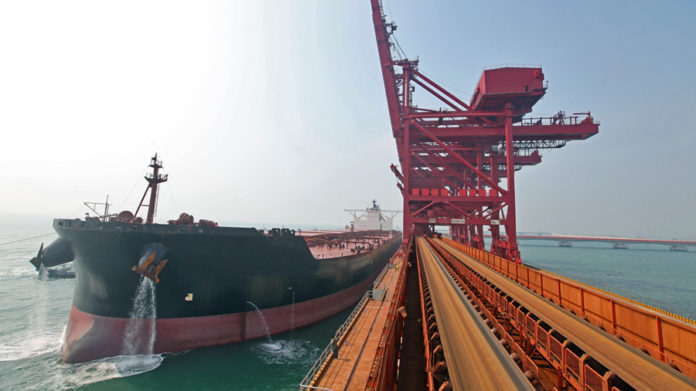
CHROMESA is at odds with both the South African government and the country’s major integrated producers of chrome ore and ferrochrome – Glencore and Samancor – over the proposed tax on chrome ore exports.
That became clear at a presentation by Chrome SA to financial media on Thursday during which Assore GM, Alistair McAdam, confirmed the integrated producers “believe such a tax will be beneficial to themselves and will not be detrimental to us as exporters”.
This is despite the fact that Glencore and Samancor are also exporters of chrome ore to China which is the prime target of the proposed tax which the South African exporters would have to pay themselves and then claw back in increased prices from their Chinese customers. ChromeSA represents companies such as Sibanye-Stillwater, Anglo American Platinum and Tharisa, as well as Assore.
The integrated producers had responded to a report prepared for Chrome SA by consultancy Genesis Analytics assessing the impact of the proposed export tax which was shown to them for comment before being released publicly today.
Asked for details of the responses by Glencore and Samancor, Paul Anderson – a partner at Genesis – replied: “Their response was fairly dismissive. They have very strong views which are effectively that the tax is a no-brainer and South Africa is such a big exporter that we should just be able to pass on this tax completely to China. In their minds, this will not impose a cost on anyone which I think is a simplistic and extreme response.”
Chrome ore is upgraded through smelting to ferrochrome which is an essential ingredient in the manufacture of stainless steel. The South African ferrochrome producers have for years complained about the negative impact of the rising level of chrome ore exports which are converted into ferrochrome in other countries in competition with their own smelting operations.
The level of the proposed tax is not yet known, but the Chrome SA members have vehemently rejected the tax pointing to likely severe repercussions on their operations.
“We need to be clear that electricity and the (cost) escalation of more than 500% over the past ten years is the main reason why there has been a lack of investment in South African ferrochrome capacity,” said Phoevos Pouroulis, CEO of Tharisa.
“We – the chrome ore producers – are being used as a potential cure to a problem that requires cheap electricity and not attacks on chrome.”
According to the Genesis report the integrated producers account for 41% of South Africa’s total chrome ore production with “non-integrated prime producers”, such as Tharisa, contributing 33% and UG2 production (by-product from the platinum mines) accounting for 26%.
The report said that, following significant consolidation, some 99% of South Africa’s ferrochrome production was now owned by integrated operators Glencore and Samancor.
South Africa currently exports around 13.6 million tons of chrome ore annually accounting for some 76% of global chrome exports and most of it goes to China.
Some 10,808 jobs could be put at risk on the mines run by the non-integrated producers which amounted to nearly half the total of 22,904 workers employed on the chrome ore mines.











